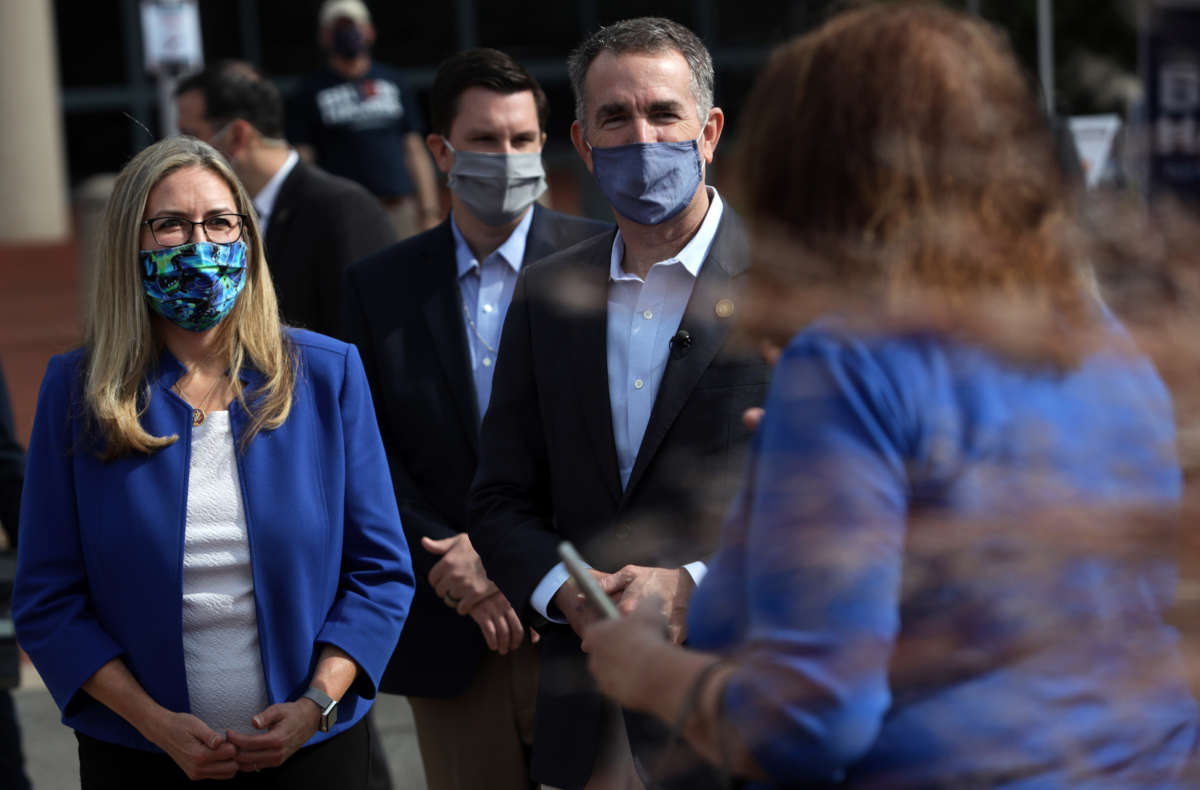Virginia Democratic Gov. Ralph Northam announced on Tuesday that he would, through an executive order, restore the voting rights of 69,000 Virginians who have completed prison sentences for felony convictions.
The move appears to be an immediate one, as the rule changes were already published on a state website.
Virginia law currently restricts a person with a felony conviction from being able to vote in the future, even if they’ve completed their sentence and probation.
Before the announcement on Tuesday, the only way for an individual convicted of a felony to have their voting rights restored was through a direct appeal to the governor. The past three gubernatorial administrations in Virginia — one Republican and two Democrats, including Northam — have restored the voting rights of hundreds of thousands of individuals through this process.
Governors could only perform this action, however, after a person completed the probationary stage of their sentence. The order on Tuesday not only removes that restriction, but reinstates voting rights for every Virginian immediately after they leave prison.
Northam touted the change in policy as being a means to help individuals reacclimate to life outside of prison.
“Probationary periods can last for years,” he said on Tuesday. “But that’s also time in which a person is living in the community, rebuilding their lives. They should be able to exercise those civil rights, even if they are still under supervision.”
Northam also acknowledged the racist origins of the policy, and how it had continued to do harm in the state. “Too many of our laws were written during a time of open racism and discrimination, and they still bear the traces of inequity. We must change it so we can get closer to being a state where people can move beyond their mistakes, and where justice is our priority,” Governor Northam said.
“Letting these folks vote or exercise other civil rights isn’t a threat to public safety,” he added. “We’re a Commonwealth that believes in second chances. And we believe in forgiveness. We want people to move forward — not be tied down by the mistakes of their past.”
Across the United States, more than 5 million individuals are disenfranchised from voting due to a previous felony conviction. Prior to Tuesday, Virginia was one of only three states that continued to treat its citizens in such a way.
The move by the governor follows the approval of a constitutional amendment by state lawmakers earlier this year that would officially codify the restoration of voting rights to people convicted of felonies. That provision isn’t enacted yet, however — in Virginia, an amendment to the constitution requires two consecutive sessions of the General Assembly to vote in favor of it, followed up by an approval from voters within the state, before it becomes law.
The change in the policy also does not allow incarcerated individuals to vote while in prison. Only two states, Maine and Vermont, plus Washington D.C., allow full enfranchisement rights to every citizen, including those still serving out their sentences.
Some Democrats in the United States Congress have floated the idea of restoring voting rights to every individual who has been convicted of a felony crime, including those still in prison. An amendment was offered to a voting bill that recently passed the House, H.R.1, to do so. The measure failed to win approval by a margin of 97 votes to 328, but its proponents took solace in the fact that Democrats who did support its passage represented a broad array of voices across the political spectrum within the party.
Support for the amendment included progressives like Representatives Alexandria Ocasio-Cortez (D-New York) and Jamaal Bowman (D-New York). But it also included establishment and moderate Democrats, like Representatives Jerry Nadler (D-New York) and Debbie Wasserman-Schultz (D-Florida).
“This fight is not over — it’s only the beginning,” Rep. Cori Bush (D-Missouri) said at the time. “The victory was in getting those 97. Look at who those 97 are. They’re a mixture of what our caucus is made of: not just progressives, not just people who claim to be progressive, not just people who look like me.”
Join us in defending the truth before it’s too late
The future of independent journalism is uncertain, and the consequences of losing it are too grave to ignore. To ensure Truthout remains safe, strong, and free, we need to raise $34,000 in the next 72 hours. Every dollar raised goes directly toward the costs of producing news you can trust.
Please give what you can — because by supporting us with a tax-deductible donation, you’re not just preserving a source of news, you’re helping to safeguard what’s left of our democracy.
